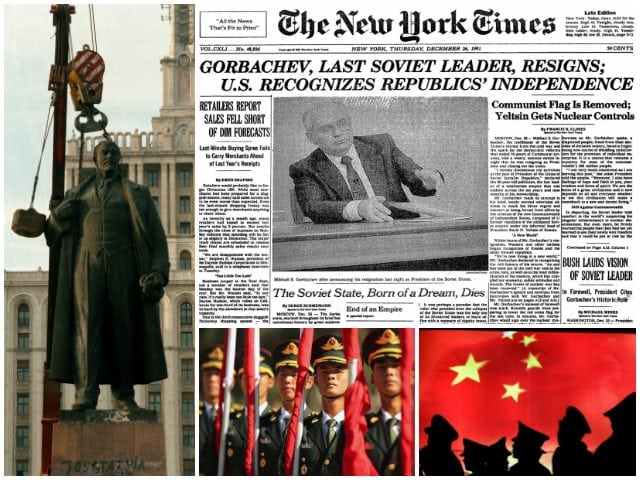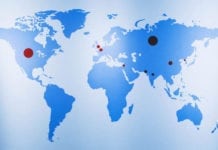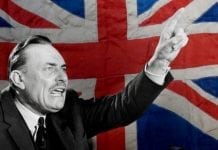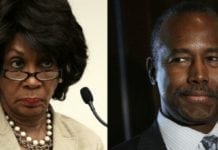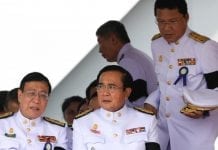On December 26, 1991, Americans woke up to the news that the Soviet Union had collapsed. In one of the many Russia-related stories on the front page of The New York Times that day, the death of the USSR was written like an obituary:
THE SOVIET STATE, MARKED THROUGHOUT ITS BRIEF BUT TUMULTUOUS HISTORY BY GREAT ACHIEVEMENT AND TERRIBLE SUFFERING, DIED TODAY AFTER A LONG AND PAINFUL DECLINE. IT WAS 74 YEARS OLD.

From the perspective of today, it’s hard to think back that far. American politics in 1991 were confused, to say the least.
In that year, President George Bush (the now familiar middle initials, H.W., were never used, because his son, the future president, George W. Bush, was then a relatively obscure baseball team owner) had led the U.S. to triumph in the Kuwait War.
And then – thanks to the courageous policies of his predecessor Ronald Reagan – Bush oversaw the peaceful demise of the USSR and the end of the Cold War. And yet, despite all of this, his political support was crumbling.
Why? Well, his pledge-breaking tax cut didn’t help things. The words “Read my lips” is now synonymous with “Don’t believe what’s coming out of my lips.” But Bush’s political eclipse was more than this obvious flip-flop.
For one thing, Bush lacked a flair for the dramatic; he didn’t have the political instinct to make the most of his own success. So he chose not to make as much as he could have of the February 1991 victory over Iraq, and he made even less of the December 1991 victory over the Soviets.
And by 1991 Republicans had been in the White House for more than a decade, and so to many voters, the words “time for a change” seemed like a tonic.
Yet if the domestic politics of 1991 were cloudy, the intellectual climate of 1991—at least in terms of international geopolitics—was perfectly clear: The U.S. had won, and that was a victory not only for America, but also for American ideas.
Perhaps the most prominent geopolitical voice in those days was that of a U.S. think-tanker, Francis Fukuyama. In 1989, the year that the Berlin Wall came down, Fukuyama published the essay “The End of History?” in a small journal, The National Interest.
The essay had a massive impact, and the cautionary question mark in the essay’s title was soon forgotten, as observers rushed to embrace the clear thrust of Fukuyama’s argument, which was that we were seeing “the end point of mankind’s ideological evolution and the universalization of Western liberal democracy as the final form of human government.”
Fukuyama’s argument was not that historical events would cease to happen, but that the debate over political ideas and political systems would come to an end with the triumph of Western values.
In the future, Fukuyama argued, the “big” arguments would be only smallarguments, fully in keeping with peaceable American wishes.
The world – now free of “history” and in tune with victorious American ideals – would be concerned henceforth with “economic calculation, the endless solving of technical problems, environmental concerns, and the satisfaction of sophisticated consumer demands.”
At the time, others were quick to add their voice to the proposition that the U.S. had won, big-time. For example, the following year, 1990, Charles Krauthammer published a widely read article in Foreign Affairs, entitled “The Unipolar Moment.”
His point: Now that the U.S. was the world’s only superpower, it had the chance to positively reshape the world.
From the writings of Fukuyama and Krauthammer, joined by many other like-minded foreign policy gurus, we can gain a mental context for U.S. foreign policy in the Clinton, Bush 43, and Obama administrations.
Most obviously, the belief that the U.S., and its ideas, could remake the world for the better led to the military interventions in Somalia, Yugoslavia, Afghanistan, Iraq, Libya, and other countries.
Today, of course, we can see that these interventions were mostly failures that cost us dearly in blood and treasure. It was easier to “nation build” on a chalkboard in Washington, D.C., than it was actually do it on the ground.
The victory of Donald Trump in 2016 thus stands as the voters’ rebuke to the globalist grandiosity of the D.C. grandees who sent the sons and daughters of the Deplorables to fight these wars without end.
Now we know that not everyone around the world was, or is, eager to embrace Western liberal democracy. In fact, just about every other country has its own ideas as to how it should operate, and these ideas have little, if anything, to do with the theorizing of American savants.
Indeed, surveying all the changes since his famous essay, the same Francis Fukuyama told an interviewer in February 2017: “Twenty-five years ago, I didn’t have a sense or a theory about how democracies can go backward. And I think they clearly can.”
Of course, the most dramatic counter-theory to the American theory has been the People’s Republic of China. The Chinese regime has never pretended to be interested in our political ideas — even if it has, of course, been plenty interested in our capital, our technology, and our domestic market.
In fact, in the fateful year of 1989, when it seemed as though the wind of Western freedom was blowing strong, a countering wind from the East was blowing strong, too.
In June of that year, the Chinese government violently crushed a peaceful student protest at Tiananmen Square in Beijing; the number of fatalities in that suppression is now known to be as high as 10,000.
I guess you could say the Chinese leadership wasn’t kidding around. It was resolutely determined to avoid what they saw as the mistakes of the Soviet leadership.
In the Chinese view, Soviet chief Mikhail Gorbachev was a softie, and that’s why he fell from power and his empire collapsed. The Chinese government, instead, would be tougher—much tougher. And that toughness has worked for China’s leadership ever since; they are still in charge.
Yes, whether Americans like it or not, the Chinese have done it their way, in the tradition of Chinese emperors reigning over the Middle Kingdom – which is, after all, at the center of it all – going back thousands of years.
One might even say that the Chinese have been preaching and practicing the doctrine of China First.
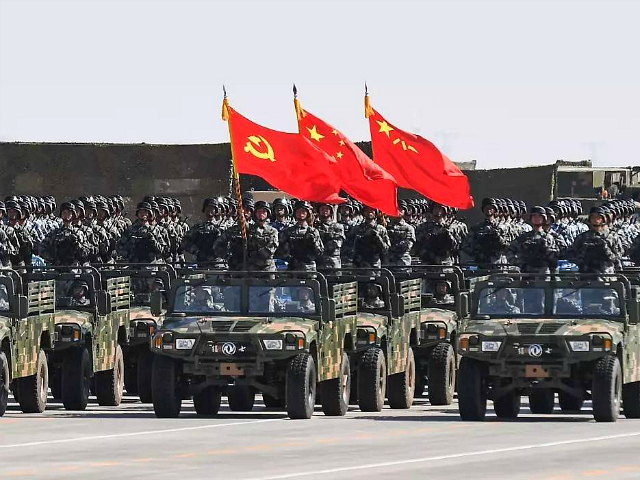
We might further note that the Chinese model – Western-style capitalism, albeit carefully protected by trade barriers, along with the diminished Western-style personal and political freedom – seems to be the wave of the future in Asia.
And so attention should be paid to this December 25 headline from Bloomberg News: “China to Overtake U.S. Economy by 2032 as Asian Might Builds.” (We might note that other estimates have found China overtaking the U.S. a lot sooner than that.)
If China continues to gain, then December 26 will be remembered not for the collapse of the Soviet Union but, rather, for the rise of China. You see, December 26, 1893, was the birthday of Mao Zedong.
And if some younger Americans might be a bit fuzzy as to exactly who he was, well, that’s likely to change, as China reshapes the economic, political, and mental map of the world.
–
You can follow Albert on Twitter and Instagram
Or join the free mailing list (top right) and please comment on story below

